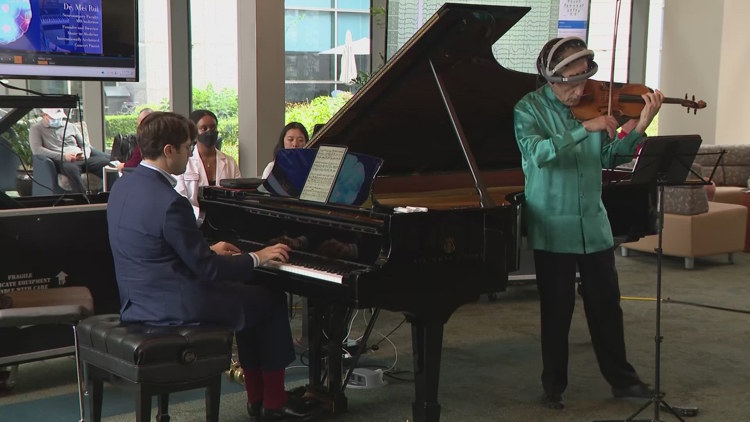A groundbreaking study at the MD Anderson Cancer Center is examining the healing potential of music through advanced brain mapping technology. This innovative research aims to understand how music therapy can positively impact patients’ physical and emotional well-being. The center, part of the University of Texas system, is leveraging cutting-edge techniques to explore the relationship between music and brain activity.
The study utilizes brain wave analysis to measure how different types of music influence brain responses. By monitoring participants’ brain activity while they listen to various musical genres, researchers can identify specific patterns associated with relaxation, stress reduction, and even pain relief. The findings may highlight music’s role as a complementary therapy in clinical settings.
Exploring the Science Behind Music Therapy
Researchers at MD Anderson are particularly interested in the neurobiological mechanisms that underpin the effects of music on the brain. The study is designed to explore whether certain musical elements, such as rhythm or harmony, can elicit distinct emotional responses. This may lead to tailored music therapies that cater to individual patient needs.
According to Dr. Sarah Johnson, lead researcher and psychologist at the center, “Understanding how music interacts with brain activity can pave the way for new therapeutic approaches. We are excited to delve into this very invasive art form and its implications for healing.” The term “invasive” here refers to the profound impact music can have on emotional and physical states, rather than any literal intrusion.
Preliminary findings from ongoing studies suggest that engaging with music can lower anxiety levels and improve mood, which are critical factors in patient recovery. For instance, patients undergoing chemotherapy reported feeling more relaxed and less anxious after listening to their favorite tunes during treatment sessions.
Implications for Patient Care
The potential applications of this research extend beyond mere enjoyment of music. If validated through further studies, the integration of music therapy into standard care protocols could revolutionize patient experiences in hospitals. Hospitals may introduce music therapy programs to enhance comfort and promote healing among patients facing various health challenges.
As the study progresses, MD Anderson plans to collaborate with music therapists and neuroscientists to refine their approaches and validate the outcomes. This partnership could lead to the development of specific playlists or musical interventions designed to maximize therapeutic effects.
By exploring the uncharted territory of music’s impact on health, MD Anderson Cancer Center is positioning itself at the forefront of a new approach to patient care. With the right applications, music could become an essential tool in the healing process, providing comfort and support to patients when they need it most.
The ongoing research is scheduled to continue throughout 2023, with results expected to be published in peer-reviewed journals. The findings could contribute significantly to the field of music therapy and open doors for future studies focused on integrating artistic forms into medical treatment.
